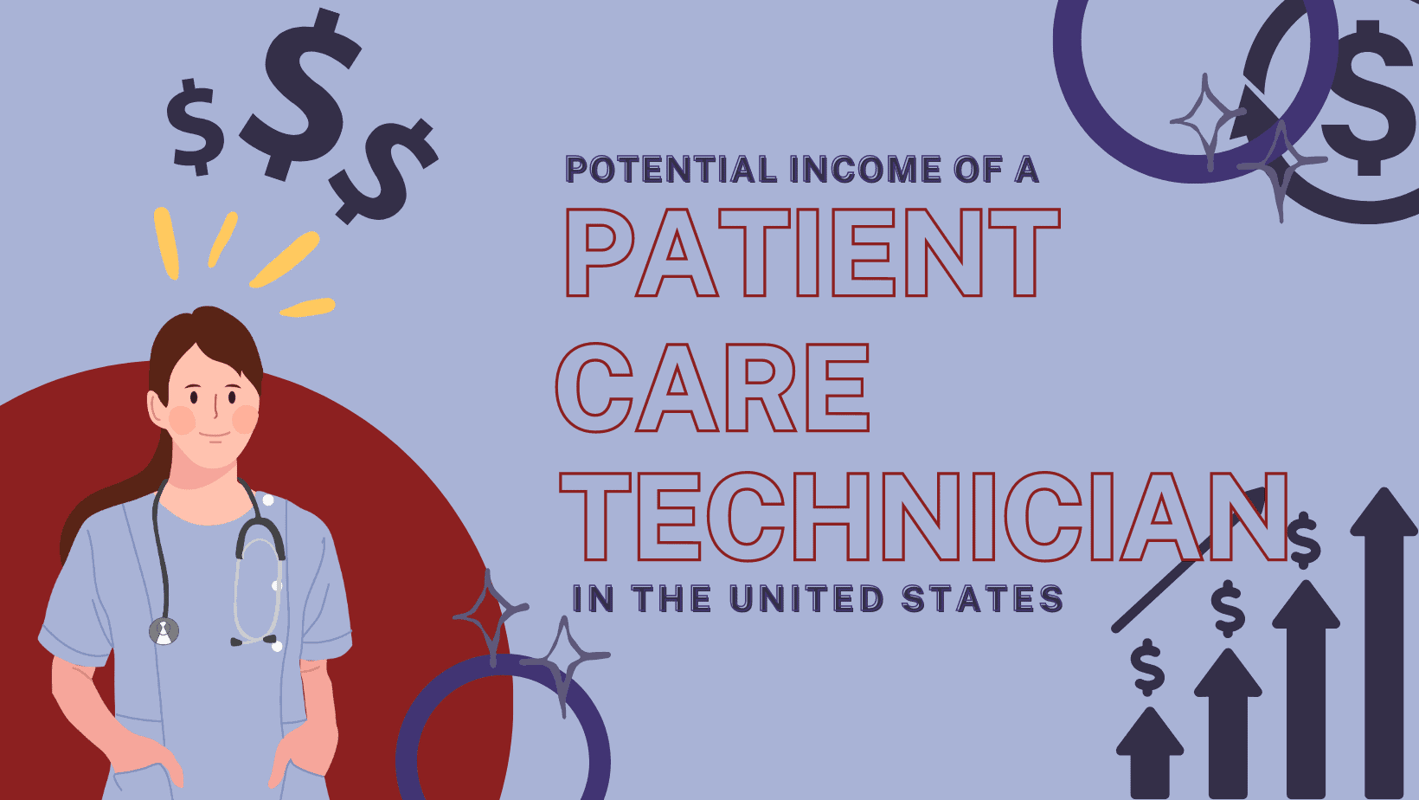Patient Care Technician Salary

Are you aspiring to pursue a fulfilling Patient Care Technician (PCT) career? Wondering about the potential Patient Care Technician salary? Let's explore PCT salaries, understand the impact of certifications, and uncover the promising job prospects that await aspiring PCTs!
Job Outlook for PCTs
Now that we've explored salaries, let's dive into the promising job outlook for PCTs. As the demand for healthcare services continues to grow, there is an increasing need for proficient PCTs. PCT employment opportunities will increase by 12% over the next decade —from 2018 to 2028, according to the Bureau of Labor Statistics (BLS). This optimistic job outlook ensures stability and ample opportunities for a fulfilling career.
Final Thoughts
Choosing a career as a PCT offers personal satisfaction and financial rewards. Remember to consider the salary variations across different industries, the positive impact of certifications on your earning potential, and the bright job prospects awaiting PCTs.
So, if you're passionate about helping others, eager for a hands-on healthcare role, and seeking a stable and rewarding career, becoming a PCT might be the perfect path. With that, discover how Dreambound can effortlessly lead you to Patient Care Technician certification classes near you using your zip code. You'll have access to a list of schools and class information in just a few clicks. Let Dreambound simplify your search!
Explore and learn more through our informative blogs below:

Fel is a student support representative who guides enrollees to the right program and answers their queries. She's committed to helping students and takes pride in her work. In her free time, she enjoys sightseeing and hanging out with loved ones.



